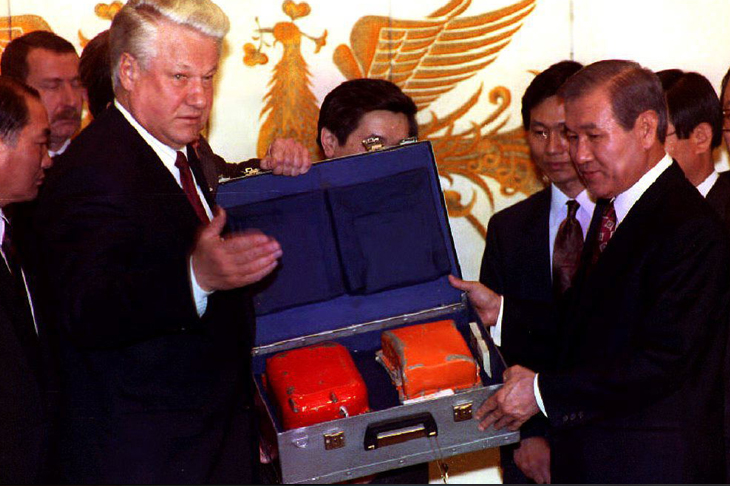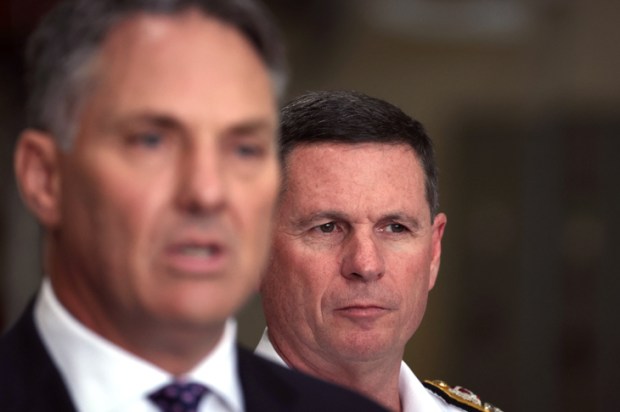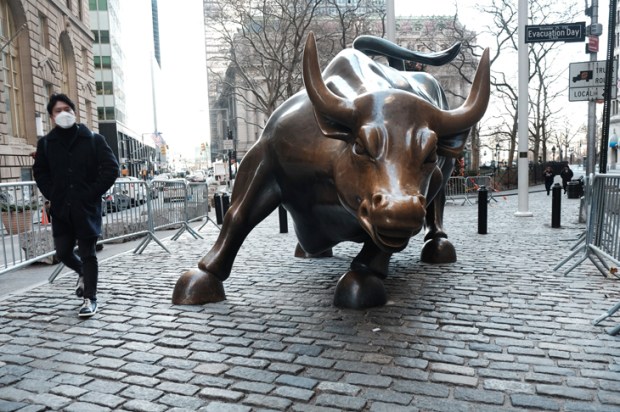Rock along to any gathering of centre-right types and before too long you’ll hear someone earnestly declare how ‘the leadership of Ronald Reagan and Margaret Thatcher won the Cold War without firing a shot’. Treasurer Josh Frydenberg was riffing on this well-worn theme recently.
Now, no doubt there is still much to learn from the Gipper and the Iron Lady. Yet in recent times and particularly during this Covid-19 crisis, my mind turns to a less well-known individual, a Russian from that era, who not only deserves his fair share of credit that our twilight struggle with the Soviets ended peacefully, but who also provides some enduring lessons for politicians of all stripes today.
Stanislav Yevgrafovich Petrov was born in Vladivostok in September 1939, a few days after Hitler invaded Poland. His father was a fighter pilot who went to battle against the Nazis. His mother, a nurse, tended to some of the over 20 million Russian soldiers and civilians who died during their ‘Great Patriotic War’.
Young Petrov grew up a talented student and was accepted into the highly selective Kiev Higher Engineering Radio-Technical College. Despite Stalinist purges and political indoctrination these elite institutions were world-class in engineering and the hard sciences and still able to accomplish remarkable feats – like launching the first satellite and putting the first man in space. It is amazing what you can achieve when your Marxist curriculum isn’t too cluttered with lectures on gender fluidity, Greta Thunburg and ‘welcome to country’ ceremonies.
On 26 September, 1983, the then 44-year-old Lieutenant-Colonel Petrov was the duty officer at Serpukhov-15, the secret command centre responsible for monitoring ballistic missile launches from the United States. Tensions were high between the two superpowers at the time. Three weeks prior, Korean Flight 007 had been shot down by the Soviets, described by President Reagan as a ‘crime against humanity [that] must never be forgotten’. The leader of the Evil Empire at the time, Yuri Andropov, genuinely feared the Americans were planning a secret preemptive nuclear strike.
In the early hours of that autumn evening the Soviet early-warning system indicated that such an attack had indeed been launched. State-of-the-art computers showed at least five rockets heading towards the Motherland. They were expected to detonate in 30 minutes.
What to do? ‘The siren howled, but I just sat there for a few seconds, staring at the big, back-lit, red screen with the word “launch” on it’, Petrov later recalled. However, after careful consideration, he decided it was a false alarm. Defying standing military protocol and his anxious colleagues, the news was not reported to his leaders in Moscow. If he had done so there is a high likelihood that they would have given the go ahead for full-scale retaliation against the US. ‘I had all the data to suggest there was an ongoing missile attack. If I had sent my report up the chain of command, nobody would have said a word against it,’ he admitted many years later. This event, it is widely acknowledged, is the closest the world has ever come to a nuclear apocalypse.
Which brings us back to Covid-19. It is easy to understand why many governments reacted as they did: a new unknown virus had appeared out of the blue. Early reports suggested it was likely some sort of bioweapon had escaped from a secretive Chinese lab. The authorities in Beijing seemed to be treating it very seriously and had locked down the entire city of Wuhan. Seemingly sophisticated models from impressive-sounding institutions like Imperial College soon followed, predicting doomsday scenarios if drastic measures weren’t taken. There was simply no time to lose. Our leaders – no doubt many imagining themselves a modern-day Reagan or Thatcher – decided they needed to take bold, decisive action.
And yet it now transpires that the virus is certainly, at worst, only marginally more deadly than recent bad flu seasons. It is certainly nothing like Ebola or the Spanish Flu to which it is so often wrongly compared. One gets bored of repeating it, but it nevertheless remains the case that this virus has not produced exceptional excess death rates in countries that did not introduce serious lockdowns. The most up-to-date credible assessments now put the infection fatality rate of Covid-19 at either similar to or only slightly worse than a bad flu season. China is more or less back in business and has been for months. In Wuhan they are throwing pool parties.
Moreover, the severe restrictions that have been introduced will almost certainly cause more deaths than the virus itself. It is of course not akin to Cold War atomic annihilation, but our global economy has nevertheless been blown up in a serious, unprecedented way. Countless lives have been destroyed. Where was our Stanislav Petrov when we needed him?
This type of overreaction seems to be happening more and more frequently. The invasion of Iraq, in response to an overblown threat of weapons of mass destruction, similarly ended up causing incredible chaos in the Middle East, damage to America’s economy and prestige, and cost thousands of lives.
Similarly, the so-called ‘global financial crisis’ a few years later prompted governments to unleash a massive and disproportionate global fiscal and monetary response. It may have saved some Wall Street banks but we have been left with huge deficits and asset inflation which means young people struggle to buy houses and will be paying off debt for the rest of their lives. Again, the cure proved worse than the disease.
Petrov only died several years ago, of pneumonia (although that may not stop them counting him as a ‘Covid death’). His passing was largely unremarked. Most people have not heard of him. The irony is that if he had made a different decision the USSR propaganda machine would have kicked in and he would have almost certainly ended up a glorious hero of the Great Revolutionary War with the Americans. History would certainly have been very different.
But it is worth reflecting on his life and the important decision he made as it illustrates that there is a temperament – of healthy scepticism and independent-mindedness – found in certain individuals that transcends political ideology. It is something which has been lacking in our politics where parliaments have increasingly become rubber stamps and group-think dominates most issues of the day.
At the very least, Petrov’s name should be a reminder that when everyone is screaming ‘crisis!’ it is more important than ever to keep your head and heed the well-known medical axiom: first, do no harm.
Got something to add? Join the discussion and comment below.
Get 10 issues for just $10
Subscribe to The Spectator Australia today for the next 10 magazine issues, plus full online access, for just $10.
You might disagree with half of it, but you’ll enjoy reading all of it. Try your first month for free, then just $2 a week for the remainder of your first year.














Comments
Don't miss out
Join the conversation with other Spectator Australia readers. Subscribe to leave a comment.
SUBSCRIBEAlready a subscriber? Log in